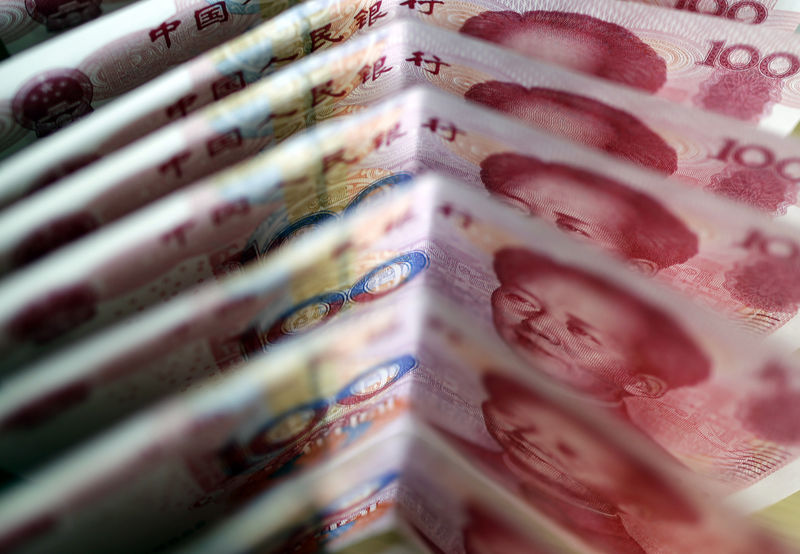Barclays Recommends Shorting Yuan and Proxies Amid Looming China Tariff Threat
London – In a recent research note, Barclays analysts have put forward a bold investment strategy, suggesting investors short the Chinese yuan (CNY) and its associated currencies in anticipation of escalating trade tensions between the United States and China. The bank believes this approach offers a more favorable risk-reward profile than maintaining short positions in the euro and other European currencies, which have already weakened considerably.
Barclays acknowledges the inherent vulnerability of the Chinese economy to increased tariffs under the new US administration. However, the analysts point out a compelling anomaly: despite the looming trade war threat, the yuan and related currencies have shown surprising resilience compared to their global counterparts. This stability, Barclays argues, presents a lucrative opportunity for investors to capitalize on a potential downturn. The bank’s view contrasts with prevailing market sentiment, where positioning against China trade risks appears relatively light, even among currencies typically sensitive to Chinese economic performance.
Several factors contributed to the US dollar’s recent surge, including heightened geopolitical tensions, disappointing economic data from Europe, and political instability in France. Amidst this global market turmoil, the divergence between the performance of the yuan and major European currencies has been striking. The euro and the British pound, in particular, have significantly underperformed against yuan-linked currencies. This trend extends beyond Europe, impacting other G10 currencies such as the Australian dollar (AUD), the New Zealand dollar (NZD), and Scandinavian currencies like the Norwegian krone (NOK).
A similar pattern emerges in emerging markets. Currencies closely tied to the Chinese economy, including the South Korean won (KRW), Taiwanese dollar (TWD), and Thai baht (THB), have outperformed their counterparts in Central and Eastern Europe (CEE3), such as the Polish zloty (PLN) and Hungarian forint (HUF). Even Latin American currencies like the Peruvian sol (PEN) and Chilean peso (CLP), heavily reliant on Chinese commodity demand, have demonstrated unexpected resilience. This divergence in performance across global currency markets underscores the unique position of the yuan and its proxies in the current geopolitical landscape.
Barclays analysts attribute this counterintuitive performance to a mispricing of risk in the market. They contend that the yuan’s stability belies the significant trade challenges facing the Chinese economy. Moreover, market positioning does not adequately reflect these risks, particularly within the G10 and emerging market currencies closely linked to China’s economic fortunes. This disconnect, according to Barclays, creates an opportunity for investors to profit from a potential correction. The bank’s analysts highlight the surprising stability of the yuan relative to the substantial trade risks confronting China, and the apparent lack of market anticipation of these risks through positioning in associated currencies, both within the G10 and emerging markets.
Barclays predicts a potential decline in lagging currencies like the AUD, NZD, and NOK within the G10, and the KRW, TWD, and THB in emerging markets, should the US impose further tariffs on Chinese goods. This anticipated decline is expected to exacerbate the economic pressures on these economies, which are already grappling with various global headwinds. The bank’s recommendation to short the yuan and its proxies presents a contrarian view, challenging the market’s current perception of China’s trade risk. The strategy hinges on the belief that the market has not adequately priced in the potential impact of escalating trade tensions on the Chinese economy and its associated currencies. This bold call underscores the complexity of the current global economic environment and the potential for significant shifts in currency valuations.




